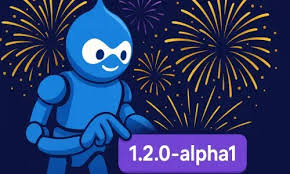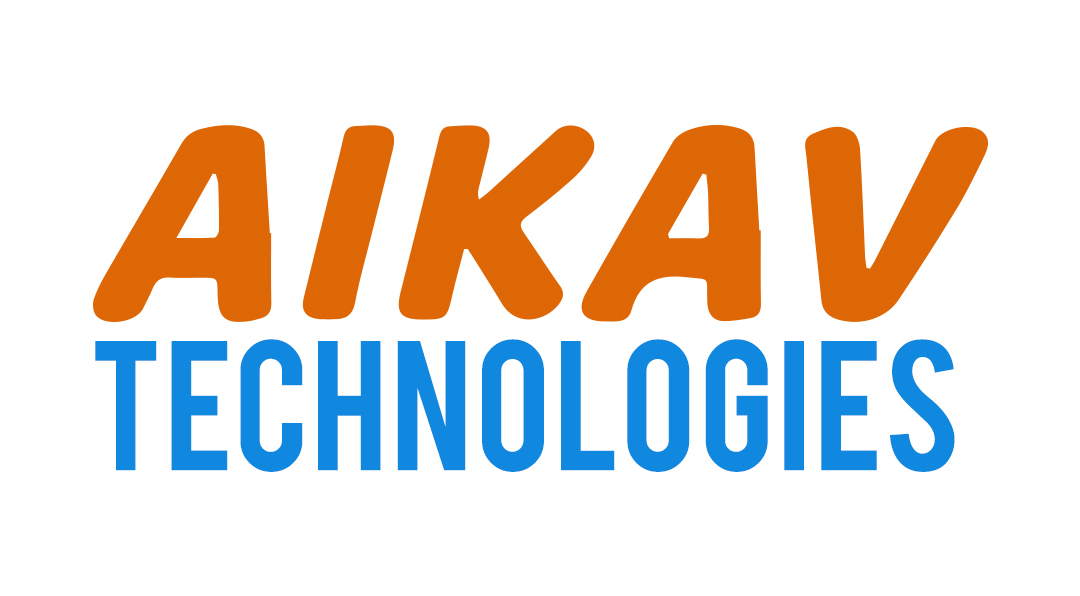
The Drupal community has just released Drupal AI 1.2.0-alpha1, offering a sneak peek at what to expect in the upcoming 1.2.0 version. This early release is targeted at developers and site-builders, to test and provide feedback.
Because this is an alpha release, no upgrade path is provided from this version — you should treat it as experimental.
Here’s a breakdown of the new features, improvements, use cases, and what to watch out for.
What’s New & Key Features
Drupal AI 1.2.0-alpha1 brings several interesting additions and enhancements. Here are the highlights:
1. Field Widget Actions — AI buttons wherever you need them
One of the biggest new features is Field Widget Actions: the ability to add interactive buttons to any entity form, so editors can invoke AI directly from fields.
For example:
You might click a button on a body field and ask AI to suggest a summary or rewrite.1
It integrates with AI Content Suggestions, AI Automators, and AI Agents, so you can go from simple prompts to more sophisticated logic.
This gives editors more control and convenience, while still keeping human judgment in the loop.
2. Prompt Library — ship prompts as configuration
Another powerful addition is a Prompt Library capability: modules and site builders can ship well-crafted prompts as configuration, rather than having to embed prompt text manually.
This helps with context engineering: you can bundle “best practice” prompts with modules or reuse them across projects.
3. Expanded entity support: Blocks & Taxonomy Terms
Until now, AI Content Suggestions mostly applied to Nodes (content types). With 1.2.0-alpha1, suggestions are extended to Blocks and Taxonomy Terms as well.
This means you can get AI assistance for block text (e.g. sidebars, callouts) or term descriptions/metadata.
4. Mocking library for testing / replaying requests
One of the pain points in AI development is waiting for responses from providers, or generating repeated calls (which may be costly). To help with this, a mocking library has been introduced — you can capture a real provider response, replay it in tests or development, and decouple your test environment from external calls.
This is especially useful in CI, automated testing, and when iterating rapidly.
5. Support for more file types
Drupal AI’s core has been restructured to accept more file types beyond plain text — e.g. PDFs and videos.
This opens the door to richer AI interactions: summarizing documents, extracting insights from PDFs, or even applying vision / multimodal models.
6. New Automator types
Automators let you configure how AI logic applies automatically to fields or content. In this alpha, several new Automator types are added:
Image Alt Text generation — useful for accessibility, automatically generate alt text from context.
Image Filename Rewrite — rename image files (e.g. from “IMG1234.jpg”) into more descriptive, SEO-friendly names.
Summary Generation for “Text with Summary” fields — auto-generate the summary portion from the body text.
These reduce manual effort and help enforce best practices (alt text, meaningful filenames, metadata) by default.
7. Vector databases abstracted for recipes
AI features often rely on vector databases (for embedding storage, semantic search, etc.). In this release, Drupal AI introduces an abstraction layer so that recipes (preconfigured AI features) can work without being tied to a specific vector database (e.g. Milvus, Postgres, Pinecone).
This means your recipe doesn’t need to know which DB is backing the vectors — it just works.
8. Versioned documentation & provider abstractions
Documentation is now versioned: so when you’re using version 1.2.x, you’ll see the docs relevant to that version, reducing confusion.
Also, for provider development, there is a base abstraction class for OpenAI-style providers (Mistral, Anthropic, Ollama, etc.), which lowers the barrier for contributing or integrating new providers.
Installation & Compatibility
Works with Drupal ^10.4 or ^11
Install via Composer:
Manual download (tar.gz / zip) are available, but Composer is preferred.
Because it’s an alpha, the Drupal project does not provide upgrade paths from this version — treat it as experimental.
Use Cases & Scenarios
Here are some example scenarios enabled (or improved) by 1.2.0-alpha1:
Editor experience improvements: an editor editing a node form sees an “Suggest Title” or “Summarize” button next to the title or body field. They click it, get suggestions, pick or retry.
Alt text automation: when an image is uploaded, the module can automatically generate suitable alt text based on context (node title, caption, etc.).
SEO file naming: rename image files automatically to more descriptive names (e.g. “sunset-beach.jpg”)
Taxonomy & block metadata: auto-suggest descriptions or tags for taxonomy terms or blocks in the site
Embedding & search recipes: Use vector database recipes that are provider-agnostic; e.g. build semantic search, content recommendation across your site
Offline testing / development: using the mocking library, devs can write automated tests that simulate AI responses without calling external APIs each time
Document and video ingestion: in future or with augmented providers, ingest PDFs or video files, summarizing or extracting insights
Many of these are incremental improvements, but together they enhance the AI experience across content creation, metadata, usability, automation, and integration.
Limitations & Things to Watch Out For
Because this is an alpha release, there are caveats:
No guaranteed backward-compatible upgrade path from this alpha.
Some features are likely still in flux; APIs or configuration may change before the final 1.2.0 release.
Performance or stability issues may arise — it’s best to test in a development environment, not production.
Mocking responses help, but real provider behaviors (rate limits, latency, costs) may still differ.
Use of vision, video, or PDF features depends on provider capabilities and model support (i.e. your AI provider must support those file types).
Abstraction is good, but sometimes low-level control is necessary — for edge or custom cases, you may still need to dive deeper.
What’s Next?
Drupal AI 1.2.0 is still under development. After the alpha phase, we should expect:
Beta releases with stabilization, bug fixes, and possibly deprecation of alpha-only APIs
Additional features, UI enhancements, performance tuning
Full upgrade paths from alpha → beta → stable
More provider integrations, tooling, and community modules built atop AI
Community feedback, issue reporting, testing to help polish the release
Indeed, version 1.2.0-alpha2 is already out (as of August 2025) and includes stability fixes, new features (e.g. Views Automators, improved accessibility) and streaming enhancements.
Conclusion
Drupal AI 1.2.0-alpha1 is a promising preview release for AI in the Drupal ecosystem. It brings several useful and forward-looking features: Field Widget Actions, expanded entity support, prompt libraries, automators, mocking, and more.
If you’re a Drupal developer or site builder curious about AI, this is a great time to experiment, provide feedback, and help shape how AI will work within Drupal in the near future
